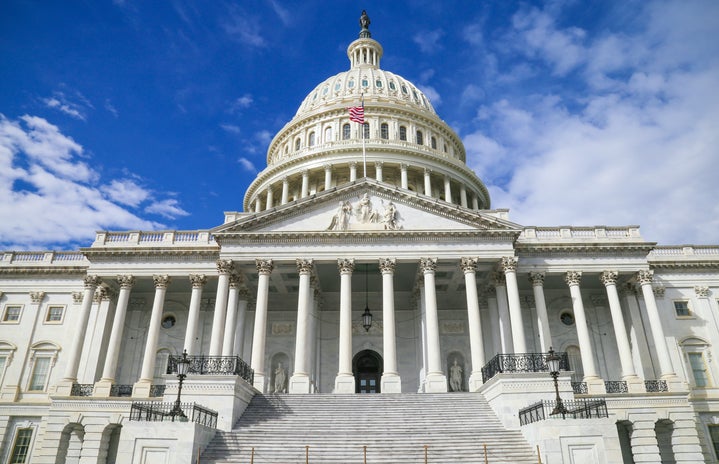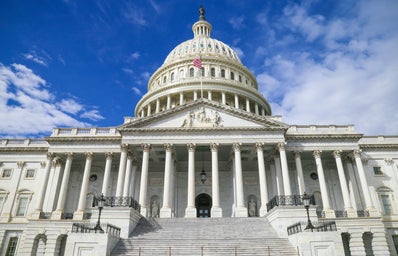The recent Listeria outbreak that has caused 57 hospitalizations and claimed the lives of 9 people across the United States is shocking in a country with one of the best food safety systems in the world. The people of the United States trust that the food they buy at the grocery store is safe for human consumption. We trust the government to regulate food companies and ensure compliance with food safety standards. Outbreaks of deadly food-borne illnesses do more than cause widespread panic and result in the loss of revenue: they violate the trust we the people put into the regulatory system. But we shouldn’t be surprised these outbreaks occur, not when Republicans have been attacking our regulatory system for decades and not when the Trump Administration laid the groundwork for these types of incidents to occur.
The words ‘Bureaucracy’ and ‘Regulatory State’ have become boogiemen for the words that describe the ways our government uses laws and regulations to ensure the private sector is conducting itself properly. Federal regulations limit the amount of lead allowed in drinking water or which drugs are safe to put to market, to give two examples. At their core, federal regulations ensure the safety of the American people and sometimes make life a little easier, as is the case in the new Biden Administration rule that makes it easier for passengers to get refunded for canceled and delayed flights. Republicans have been capitalizing on a lack of understanding of what regulations do to push dangerous policy agendas. The narrative that regulatory agencies are bad for business is hard to accept when Boar’s Head had to pull over 7 million pounds of product due to the Listeria outbreak and when the PR fallout of these types of incidents spoils the brand image.
We are constantly told that businesses can regulate themselves, and the Trump Administration has pushed this narrative hard. One rule implemented during his administration allowed pork plants to opt into a program that allowed companies to replace some federal regulators with their own, in-house regulators. While the plant involved in this outbreak did not use this program, it remains in mind when we talk about food safety. This type of delegation of regulatory authority is not new and has had disastrous consequences, especially in aviation regulation.
Boeing has long been a pride of the US economy, and one that has based its brand image on safety. An old saying was “If it’s not Boeing, I’m not going.” This image has shifted dramatically in recent years following the 2018 and 2019 crashes of their 737 Max planes, where a total of 346 people were killed. The January 2024 incident on an Alaska Airlines flight where a door blew off the plane has renewed the bad PR for Boeing, and the saying has become “If it’s Boeing, I’m not going.” In each of these incidents, the relationship between Boeing and its regulator, the Federal Aviation Administration, has drawn strong scrutiny, especially after the FAA changed its regulatory practices to increase oversight of Boeing after the 2018 and 2019 crashes.
Both the aviation and food industries should provide strong cases for companies having an incentive to regulate themselves, but in both industries, it is clear they do not. Companies always have an incentive to cut corners and reduce costs, but in food and aviation, these measures can lead to death on a large scale. Companies should have an incentive to keep their brand image associated with quality, but in many cases, the dangerous, cost-cutting measures are a calculated risk, and companies bet on human lives. They accept a certain level of risk, especially when the costs of operating safely are high. This is the reason why regulatory agencies need to be strong and effective. Simply put, they save lives.
When companies can’t be trusted to regulate themselves even when they have an interest in operating safely, it bodes very poorly for industries where they don’t have that incentive. The Environmental Protection Agency is a prime example of this. Companies pollute because it’s easier and cheaper than properly disposing of their waste, reducing waste altogether or shifting production practices altogether. Most people do not directly interact with these companies and industries in the same way they might buy a plane ticket or put salami in their shopping cart, and companies know this. The EPA’s job in this example is to protect the public who can’t vote with their wallet in the same way as other industries.
In 2022, the Supreme Court significantly curbed the EPA’s ability to regulate greenhouse gas emissions in West Virginia v. EPA. The ruling was a blow to the broad deference given to regulatory agencies when deciding what and how to regulate company practices. In 2024, the Supreme Court went even further to eliminate that deference, known as the Chevron Deference, altogether. In Loper Bright Enterprises v. Raimondo, the Court ruled that the courts no longer need to defer to the expertise of the relevant agency when there are ambiguities in the law. Under this new precedent, courts have much greater power in interpreting the law and have an increased role in setting policy through their interpretations of the law.
The overturning of the Chevron Deference is especially worrisome when there are increased questions about the court’s impartiality, especially at the Supreme Court where justices are not bound by ethics rules. In the current 7-3 conservative majority on the court, the right can pursue their deregulation agenda at the highest level, even if they lose a vote or two along the way.
With such a coordinated assault on the regulatory framework of the US government, we should not be surprised that regulatory failures occur, but we don’t need to accept the deaths and harm they cause. Strong regulatory power saves lives, plain and simple. Whether directly by preventing listeria outbreaks or indirectly by preventing dangerous amounts of chemicals from entering the environment. A good regulatory system can also save money in healthcare and legal costs because preventing problems costs a lot less than paying hundreds of millions of dollars in fines and healthcare costs.
But it’s not all bad for regulators. In many ways, recalls prove we can be confident in our system, but this is also hard to balance the real toll of these outbreaks on the people affected, especially when the government is playing catch-up to businesses instead of taking a more proactive approach to safety. The numerous reports by the FSIS, the USDA’s Food Safety Inspection Service, that document mold and insects at the factory traced back to the recall are arguments for a stronger regulatory system, one that can adequately respond to these issues and prevent this product from hitting stores in the first place. All in all, we shouldn’t be afraid of regulation, and we should fight hard to protect it because regulations protect us.

